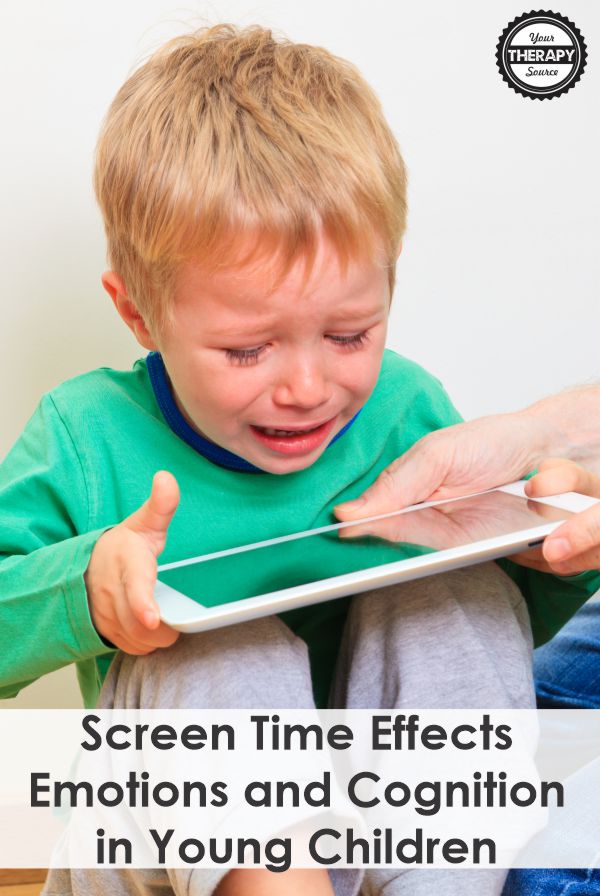Effects of Screen Time on Emotional Regulation and Academics

The Journal of Early Childhood Research published a study on the effects of screen time on emotional regulation and academics in children. With so many young children using digital devices, the researchers wanted to take a closer look of the effects of screen time on emotional and cognitive functioning.
Methodology of the Study
In this 4-year longitudinal study on the effects of screen time, a sample of 422 children and their mothers, the researchers evaluated the hypothesis that the use of digital devices as smartphones and tablets at 4 years of age is related to later dysregulation symptoms and to lower academic achievements both at 6 and 8 years of age.
Children’s mothers reported on whether or not their children had access to digital devices and what was their average screen time was on a typical day. In addition, the mothers were also requested to specify whether they used to participate in their children’s activities during screen time and to report their children’s emotional/behavioral functioning.
The Teachers Report Form was completed by the children’s teachers to assess academic achievements and dysregulation symptoms in their students.
Results of the Study on the Effects of Screen Time on Emotional Regulation and Academics
Following data analysis, the researchers determined that:
- screen time at 4 years of age was directly, positively and significantly associated with dysregulation.
- screen time at 4 years of age was negatively associated with mathematics and literacy grades at 8 years of age of the child.
The researchers concluded that the results could help establish additional guidelines for the use of digital devices by very young children.
Reference: Cerniglia, L., Cimino, S., & Ammaniti, M. (2020). What are the effects of screen time on emotion regulation and academic achievements? A three-wave longitudinal study on children from 4 to 8 years of age. Journal of Early Childhood Research, 1476718X20969846.
Read more on anger outbursts and screen time.
Additional Research on Screen Time
Previous research on the effect of screen time in very young children indicated that:
- Children were viewing screens for an average of 17.09 hours per week at 24 months, 24.99 hours per week at 36 months, and 10.85 hours per week at 60 months.
- higher levels of screen time at 24 and 36 months were significantly associated with poorer performance on developmental screening tests at 36 months and 60 months.
Reference: Madigan S, Browne D, Racine N, Mori C, Tough S. Association Between Screen Time and Children’s Performance on a Developmental Screening Test. JAMA Pediatr. Published online January 28, 2019. doi:10.1001/jamapediatrics.2018.5056
Need specific activity suggestions to reduce excessive screen time?

Play – Move – Develop: 100 reproducible games and activity ideas to encourage motor skill development and learning in children. A great resource for fun, home exercise program activities.



